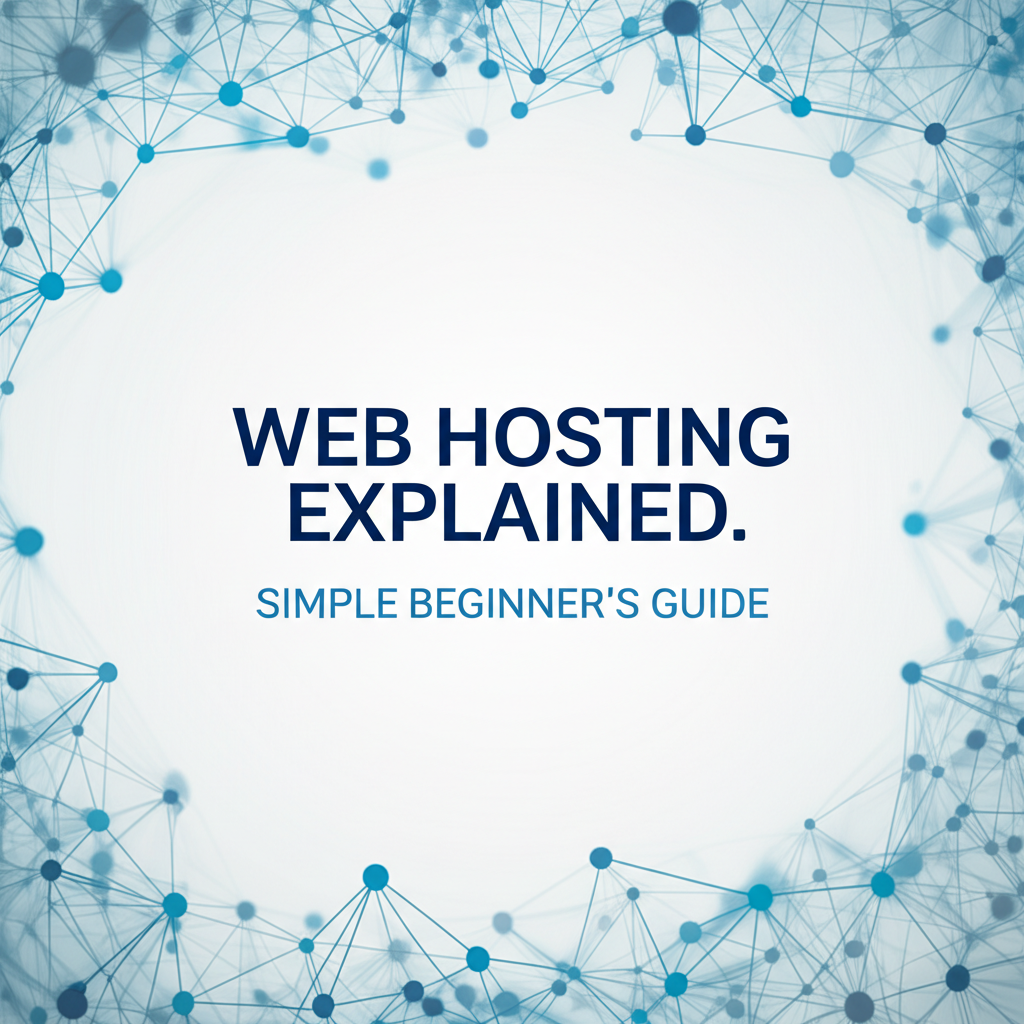- What Exactly is Web Hosting?
- Different Types of Web Hosting
- Shared Hosting
- VPS Hosting (Virtual Private Server)
- Dedicated Hosting
- Cloud Hosting
- WordPress Hosting
- Key Factors to Consider When Choosing Web Hosting
- Web Hosting and Domain Names: Two Pieces of the Puzzle
- Getting Started: Choosing Your Web Hosting
Web Hosting Explained: A Simple Beginner’s Guide
Web hosting is the foundation of any website’s online presence. It’s essentially renting space on a server to store all the files and data that make up your website, allowing it to be accessible to anyone on the internet. Think of it like renting a physical store for your business – you need a space to display your products, and web hosting provides that digital space for your website. Without it, your website wouldn’t exist on the internet. This beginner’s guide will demystify web hosting and equip you with the knowledge to choose the right hosting solution for your needs.
What Exactly is Web Hosting?

Imagine the internet as a vast network of interconnected computers. These computers, called servers, store and transmit information. When someone types your website address into their browser, their computer connects to the server where your website is hosted. The server then sends the necessary files to the user’s browser, allowing them to view your website. Web hosting companies own and maintain these servers, providing the infrastructure and technical support required to keep your website online 24/7.
Different Types of Web Hosting
Choosing the right type of web hosting is crucial for your website’s performance and scalability. Here’s a breakdown of the most common types:
Shared Hosting
Shared hosting is the most affordable option and perfect for beginners. Your website shares server resources with other websites, like sharing an apartment building with other tenants. This is a cost-effective solution for small websites with low traffic.
VPS Hosting (Virtual Private Server)
VPS hosting offers more resources and control than shared hosting. While still sharing a server, your website gets its own dedicated virtual space, like having a separate apartment within a building. This provides better performance and security, making it suitable for growing websites with moderate traffic.
Dedicated Hosting
With dedicated hosting, you get an entire server to yourself. This provides maximum performance, control, and security, but comes at a higher cost. It’s the equivalent of owning the entire building and is best for large websites with high traffic demands.
Cloud Hosting
Cloud hosting distributes your website across multiple servers, working together as a single unit. This offers exceptional scalability and reliability, as resources can be easily adjusted based on demand. It’s like having several interconnected warehouses storing your goods, ensuring continuous availability even if one warehouse goes down.
WordPress Hosting
WordPress hosting is specifically optimized for WordPress websites. It comes pre-configured with WordPress and often includes features like automatic updates and enhanced security, making it a hassle-free option for WordPress users.
Key Factors to Consider When Choosing Web Hosting
Choosing the right web hosting provider and plan can seem daunting, but keeping these key factors in mind will simplify the process:
Uptime: Look for a provider that guarantees high uptime (99.9% or higher) to ensure your website remains accessible to visitors.
Bandwidth: Bandwidth determines how much data can be transferred between your server and visitors’ browsers. Choose a plan with sufficient bandwidth to handle your website’s traffic.
Storage: The amount of storage space you need depends on the size of your website and its files, including images, videos, and other media.
Customer Support: Reliable and responsive customer support is crucial, especially when encountering technical issues.
Security: Look for features like SSL certificates, malware scanning, and firewalls to protect your website from security threats.
Scalability: Consider whether the hosting plan allows for easy upgrades as your website grows and traffic increases.
* Pricing: Compare pricing plans from different providers and choose one that fits your budget and requirements. Don’t always opt for the cheapest option, as it might compromise performance and features.
Web Hosting and Domain Names: Two Pieces of the Puzzle
While often used interchangeably, web hosting and domain names are distinct entities. Your domain name is your website’s address (e.g., www.example.com), while web hosting is the server space where your website’s files reside. You need both a domain name and web hosting for your website to be accessible online. Think of the domain name as your store’s street address and the web hosting as the physical store itself.
Getting Started: Choosing Your Web Hosting
Choosing web hosting doesn’t have to be complicated. Start by assessing your website’s needs, considering factors like the type of website you’re building, expected traffic, and budget. Then, research different web hosting providers, compare their plans, and read reviews from other users. Don’t hesitate to contact the providers’ customer support to ask questions and clarify any doubts. Once you’ve found a provider and plan that meets your requirements, you can purchase your hosting plan and start building your online presence.
With a solid understanding of web hosting, you’re well-equipped to make an informed decision and choose the right solution for your website’s success. Remember to prioritize reliability, performance, and scalability when making your choice.











Leave a Reply